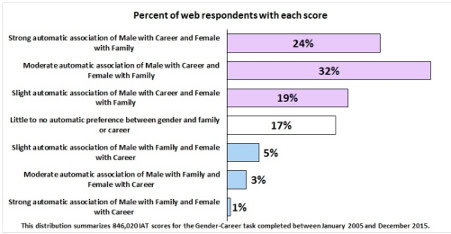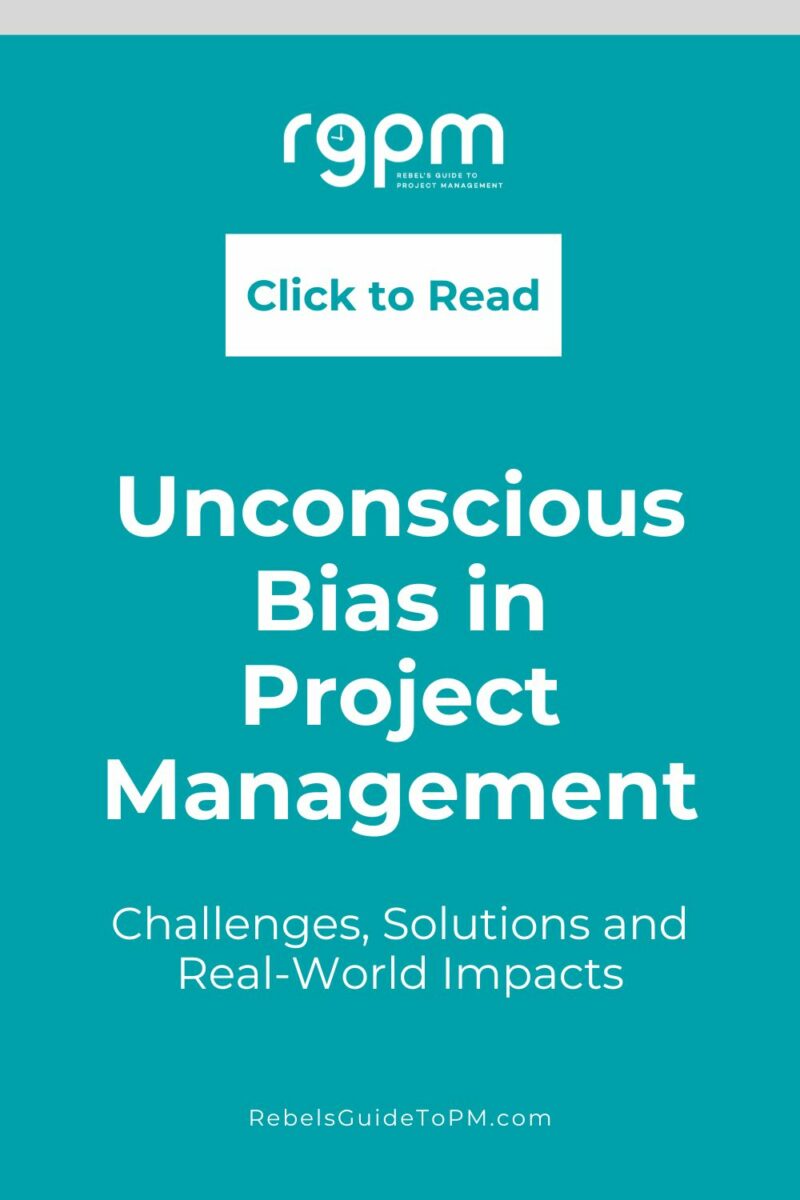How often does your brain take shortcuts? If you’ve ever questioned if you really did clean your teeth this morning, you’ll realize that your brain takes shortcuts all the time.
Unconscious bias is another shortcut. It shapes many of our decisions without us even realizing it. From hiring choices to project planning and team dynamics, these biases, deeply ingrained through culture, experience, and cognitive shortcuts, can impact fairness, efficiency, and innovation.
Unconscious bias is particularly significant for us in a project management environment, where time pressures and quick decision-making often mean we lean into familiar patterns and assumptions. Sound familiar?
So let’s get it out in the open and talk about it consciously. Let’s explore how unconscious bias shows up in projects, the risks it poses, and what we can actually do it about so you can mitigate its effects. We can work towards more inclusive and effective project environments, and if you can, wouldn’t you want to?


What is unconscious bias?
Bias is defined as:
a prejudicial behaviour in favour of (or against) something that is based on personal inclination rather than fact.
In other words, it’s an unfair shortcut in thinking and often we are not aware we hold them: bias becomes ingrained in behaviour and as such we need to be conscious of heuristics, preferences, unspoken cultural ‘norms’, stereotypes and more that might affect decision making. The effect could be positive (e.g. promoting someone) or negative (choosing not to hire someone).
Unconscious bias is where the individual isn’t aware that their choices and actions are being shaped by their assessments of others. It’s one of several types of bias that can affect decision-making or how people contribute at work.
This stems from the brain’s inherent preference towards creating shortcuts and categories to make sense of data based on learned and lived experience. The individual may consciously hold inclusive values alongside unconscious bias.
As our brains work against us by creating shortcuts and assumptions, we have to be conscious that is happening and actively try to dismantle unconscious bias to create a more inclusive and equitable working culture.
I took the Implicit Association Test (IAT) for career/family/male/female and at the end it showed the generalised results:


It’s unsurprising but still disappointing that the majority of respondents show an association through unconscious bias of male/career and female/family. It’s a really interesting test to do as it forces you to think about why your brain is slow!
How unconscious bias shows up at work
Projects can be time pressured and often project managers are working on multiple initiatives during the same working week. When we are pressured, the brain will often choose the ‘easiest’ route for decision making.
As a result, unconscious bias may come out more when people are busy and short of time, as they default to known behaviours without reflecting or pausing to ensure these are the best course of action.
Bias can impact workplace decision making e.g. ‘she doesn’t need support as she’s experienced’ or ‘we know her so we assume positive intent with that mistake and won’t take disciplinary action’.
I am not involved with salary setting or hiring, but I’m aware that salaries and promotions are offered less frequently to women (generally, I have no evidence of that being specifically the case at my organization) and that research shows men are thought of as more appropriate for certain roles.
Other examples could include:
- Limiting a woman’s career opportunities on return from maternity leave due to perceptions and bias around her new family commitments.
- Older workers being asked to do more technology training due to “not having the skills.”
A real-life example on one of my projects recently was the perception that older beneficiaries would not have or use email addresses and so we should continue to send out documentation via the post.
We do have data on how many email addresses are captured within the patient records and were able to disprove that, highlighting that many beneficiaries do have active email addresses we could use. This contributes to changing behaviour about posting documentation and ultimately helps us achieve sustainability goals by using less paper.


Overcoming bias in projects
As a mentor, part of my role is helping mentees understand bias at work and how it might be affecting them (if they are on the receiving end) or how they might be contributing to it through their treatment of others and decision making.
Some general steps I’ve picked up from my research include the following.
Helping mentees and others be self-aware and being self-aware myself and being aware of our emotions, time pressures and how those play into how bias shows up.
Making sure project teams are made up of diverse voices and creating a culture of openness and honesty where we can share and talk about bias openly.
Ensuring fair recruitment practices: competency-based standard questions for all, evidence-led, no photos, no names, gender removed from applications, using colleagues from other departments for hiring so they have ‘no skin in the game’.
Ensuring fair staff evaluation processes: having templates and standard assessments for end of year reviews etc to ensure staff are evaluated against criteria fairly.
Using evidence in feedback: instead of ‘it feels like’ – giving constructive criticism based on evidence.
Using multiple sources to seek out information to inform decision making e.g. focus groups, surveys, interviews. We do this on some projects but not on all.
Providing the option for anonymous feedback provision to avoid conformity bias, getting opinions 1-1 before a meeting so people feel they can say what they think instead of having to agree with, or having their opinions shaped by, what everyone else is saying.
This is something I do before a meeting that I know is going to end up with sharing challenging views, and it’s something I recommend to mentees too if they are concerned about conflict and controlling a conversation in a meeting setting.
Read next: How culture can impact communication in the workplace
What can you do to minimize the impact of unconscious bias on projects?
Beyond the ideas I gave above, have a read of your company’s policies. Check to see if you have an Equality, Diversity and Inclusion policy. Read the recruitment policy and see what it says about making sure applicants are treated fairly. See what support your HR team offers to ensure these policies are upheld.
Ask if your company reports the gender pay gap and ethnicity pay gap, and if they don’t, why not.
I think most of the guidance I have found has been aimed at and most relevant to team leaders. In a project management role, we do not have direct line management responsibility but would still need to form, lead and work with teams, so there could be more signposting to relevant resources for non-managers.
The single most important thing to do is to make sure you are aware that unconscious bias is a thing. Check in with yourself and your team every so often to make sure you are challenging assumptions so that any bias can be called out and addressed.






